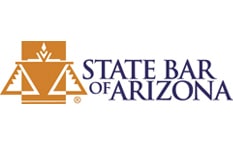Arizona Town Hall: Sentencing
Arizona is a law and order state with some of the harshest sentencing laws in the country. Several criminal justice groups from the left and the right have taken notice. One of these groups is Arizona Town Hall. The following is taken from “Sentencing and Incarceration” by Cassia Spohn, PhD, Criminal Justice in Arizona 2018, Arizona Town Hall http://www.aztownhall.org/resources/Documents/111%20Criminal%20Justice%20in%20Arizona%20Background%20Report%20web.pdf
In Arizona, judges use the Arizona sentencing guidelines which are based on two factors: whether the offense is a dangerous or non-dangerous felony and whether the defendant is a first time offender or a repeat offender. Dangerous felony charges are serious, violent or aggravated offenses such as murder, aggravated assault, sexual assault, dangerous crimes against children, and armed robbery. There are separate sentencing tables for first time offenders, offenders with one or two historical priors and offenders with prior convictions for one or more dangerous offenses. Each sentencing table has a minimum, presumptive, and maximum sentence. For repeat dangerous offenders, the sentencing table has a minimum, maximum, and increased maximum sentence.
For example, a first time offender convicted of a class 2 felony dangerous offense could face a minimum sentence of seven years, a presumptive sentence of 10.5 years, or a maximum sentence of 21 years. However, an offender convicted of a class 2 felony dangerous offense who had previously been convicted of two or more class 2 dangerous offenses would be facing a minimum sentence of 21 years, a presumptive sentence of 28 years, or a maximum sentence of 35 years.
Offenders convicted of non-dangerous felonies are somewhat different. Although these offenses are also categorized by the class of offense and by the offender’s criminal history, the sentencing tables provide a mitigated and aggravated sentence in addition to the minimum, presumptive and maximum sentences.
As an example, a first time offender convicted of a non-dangerous class 2 felony would be facing a minimum sentence of four years, a presumptive sentence of five years, or a maximum sentence of 10 years. If the judge finds at least two mitigating factors, like the defendant’s youth or the defendant played a minor role in the crime, the judge can reduce the sentence below the minimum sentence.
Similarly, if there are at least two aggravating factors, such as the defendant had an accomplice or the crime was committed in a heinous, cruel or depraved manner, the judge can increase the sentence above the recommended maximum sentence. Moreover, all first-time, non-dangerous felony offenders are eligible for probation.
The author wrote:
“Arizona has a “truth-in-sentencing” statute. Passed in 1993, the statute requires that offenders serve 85 percent of the sentence imposed by the judge before being eligible for discretionary release.
According to The Sentencing Project, Arizona’s incarceration rate is the forth-highest in the United States. In 2016 it was 585 per 100,000 population, compared to a rate of 450 per 100,000 for the United States as a whole. There were 40,952 persons imprisoned in Arizona in 2015, including 1,685 (3.9 percent of the prison population) who were serving life sentences and 504 (1.2 percent of the prison population) who were serving life sentences with no possibility of parole.”
Arizona’s harsh sentencing laws mean that it’s very important for a person charged with a felony or felonies hire an experienced defense attorney to represent them. Attorney Gary Rohlwing has over thirty years of experience representing people charged with felonies. Please call him today for a free initial consultation.







